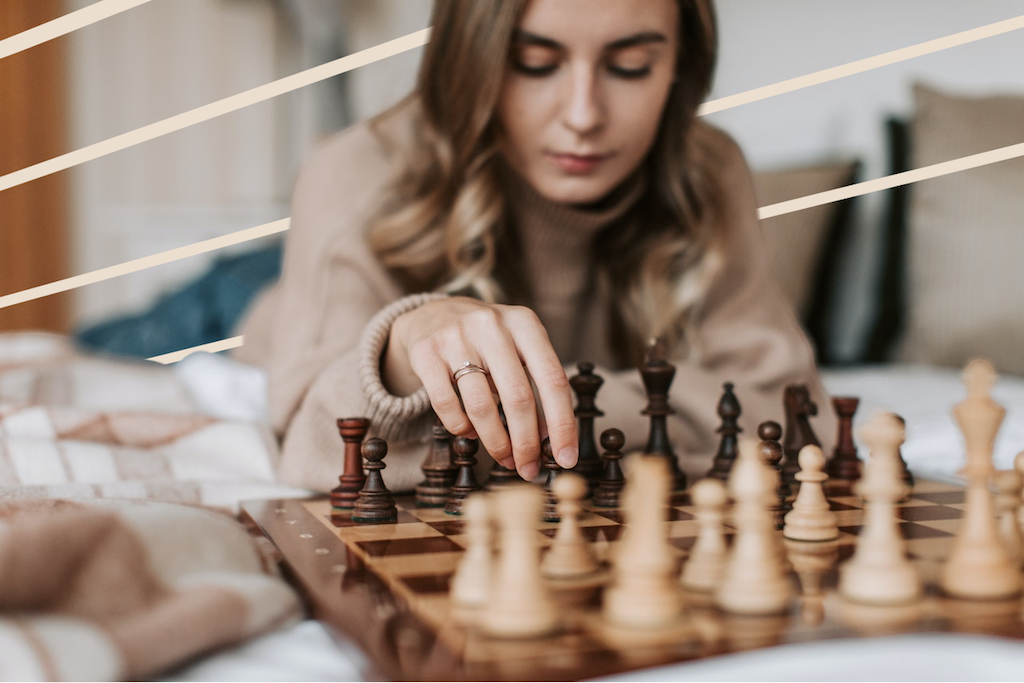A game that has existed since the 8th century, chess combines competition with critical thinking as we attempt to best our opponents on the famous chequered board.
Despite its illustrious history and reputation for being a slow-paced affair, chess has a surprisingly broad appeal; you only have to look at the success of Netflix’s The Queen’s Gambit to know that.
Today, chess is enjoyed by folks of all ages worldwide. Getting into chess is easy; look out for chess clubs in community centres, form a new group with friends or simply play online. Some even believe that the skills accrued playing – of foresight and planning, composure and cool-headedness – can be applied to life outside of chess, too.
And it’s those real-life applications we’re looking at today; more than just a game, here are 8 reasons why you should start playing chess.
Firstly, How Do I Get Into Chess?
If you’re a beginner, start by studying simple chess theory, learning everything about chess openings and practising basic board vision – that is, how the pieces interact with each other on the board, as well as the overall picture of what’s going on in the game.
Next, you may want to watch a few matches on YouTube or check out former chess master Leonard Barden’s weekly chess breakdown in the Guardian, which examines recent finishers in the world of professional chess – a real masterclass, make no mistake!
Finally, consider the help of an online chess tutor to brush up on the tactics and strategy needed to seriously master the game. Only then might you be ready to consider these reasons to start playing chess…
Chess Can Develop Planning And Foresight
To be successful, chess players must always think several moves ahead. This element of foresight can, of course, be applied to other areas of life, such as studying for exams or working on projects at work.
Chess players must learn to control their emotions and think clearly (hmm, should this be a separate point? Anyway…). By playing chess, you may develop the ability to maintain a calm head under pressure and make decisions based on reason rather than emotion.

Chess May Improve Memory And Concentration
Even chess novices need to remember the rules of the game, as well as the names and positions of the pieces. They also need to be able to visualise the board and all the possible moves. These skills can help improve your memory and concentration in other areas of life.
Memory and concentration are also crucial for keeping your mind sharp as you age, which chess has been said to help with, too!
Chess Develops Problem-Solving Skills
Players must first recognise the board and its components to make the best move. This entails analysing numerous – often endless – possibilities and developing innovative answers. These problem-solving abilities may be applied to various situations, including at school or work. In today’s world, efficient problem-solvers are in high demand – could playing chess even improve your career prospects?
Chess Develops Strategic Thinking
Successful chess players are highly skilled at anticipating future events and progressively adapting their actions accordingly. This careful thinking may be used in other aspects of life, such as in business or investments. Learning to think ahead also allows you to handle unforeseen circumstances better.
From military generals to successful business people, thinking strategically is one of life’s most important skills – and many attribute some of their unique skillset to their passion for chess.
Strategic thinking can be learned and improved with practice, and chess is the perfect place to start.

Chess Develops Logical Thinking
In order to carve out the best possible move, players must be able to see the board and all of the pieces while logically determining which is the best option, both in terms of immediacy and several potential moves down the link. This entails breaking down the problem into smaller pieces and thinking critically about each move, a valuable skill that can be applied to all manner of real-life situations.
In fact, studies have consistently posited that routinely playing the world’s most famous board game improves logical thinking, and even reading skills (in children), helps develop planning and foresight, and most comprehensively, has been said to significantly increase a player’s IQ after four months of playing.
Chess Teaches Discipline And Patience
Chess can be a deceptively tense affair, make no mistake. Players constantly try to keep their feelings in check (sometimes even deploying a certain amount of ‘poker face’), and use good judgement.
Accordingly, those who play often may learn to maintain a level head under pressure and make snap decisions based on facts and evidence. By playing chess, you can develop qualities such as discipline and patience, which may be useful in other aspects of life.
Chess Develops Hand-Eye Coordination
Chess players need to quickly arrange the pieces on the board to outplay their opponent. Constantly moving the pieces around and making the right moves requires precise movements, developing hand-eye coordination (okay, we realise this one is a bit of a stretch!).
Good hand-eye coordination can also help you in other activities, such as sports or playing musical instruments.
Chess Encourages A Commendable Sense Of Sportsmanship
All of this critical thinking and keeping a calm head under pressure tends to teach players to make decisions based on logic rather than impulse. By playing chess, you can develop qualities such as a good sense of sportsmanship and self-control, which could help massively in other walks of life, both sporting and career-wise.
The Bottom Line
These are just some of the reasons why you should give the glorious game of chess a try. Remember, it’s never too late to learn. So what are you waiting for? Pick up a chess set and start playing!





